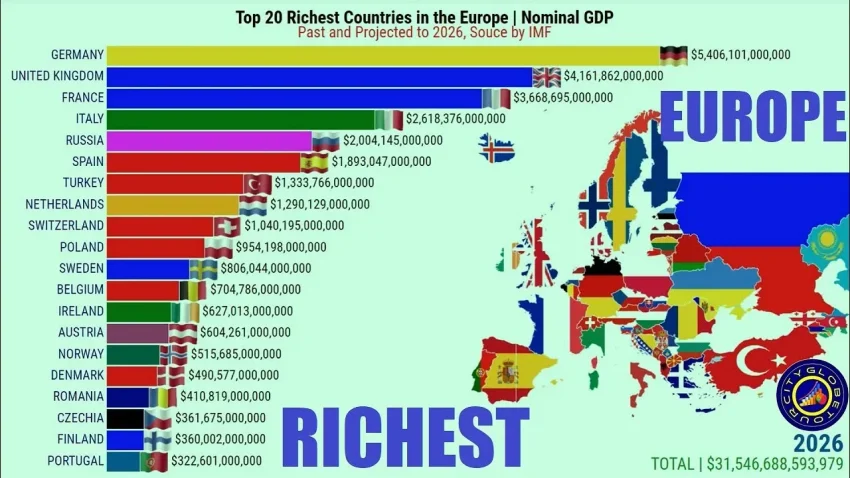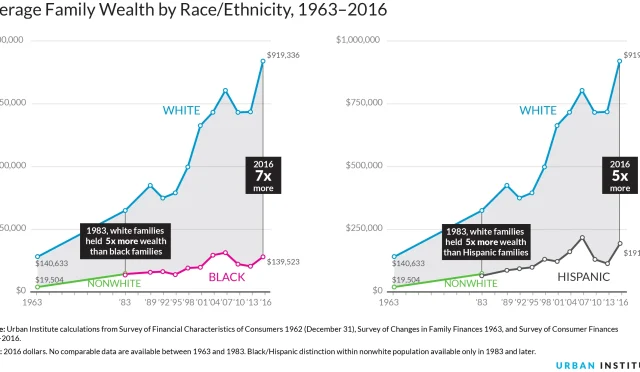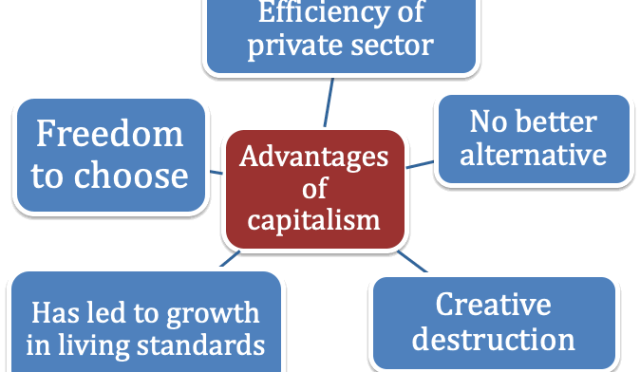Europe Wealth Increase 2024: Hungary Tops the Chart
As we look ahead to Europe wealth increase 2024, a promising outlook emerges for several nations across the continent. According to the latest UBS Global Wealth Report, many European countries have witnessed a remarkable growth in wealth per adult, with Hungary leading the charge with a staggering 18.6% increase. This shift not only highlights the varying financial landscapes among European countries but also signals a positive trend against the backdrop of inflation impact on wealth. Reported median wealth figures reveal significant advancements especially in Lithuania and Sweden, where the surge in wealth reflects broader economic recovery. As we delve deeper into European countries wealth trends, understanding these dynamics will be essential for both investors and policymakers in navigating the ever-changing economic landscape.
In the context of rising affluence throughout Europe, the anticipated economic transformation in 2024 brings renewed attention to individual nation performance. The burgeoning financial strength seen in countries like Hungary and Lithuania not only illustrates substantial wealth growth but also invites discussion on effective strategies that others may adopt. With median wealth per adult becoming a focal point of analysis, the implications of inflation on wealth accumulation cannot be overlooked, as these factors play a critical role in shaping the overall financial well-being of European citizens. Furthermore, monitoring longer-term wealth trends across various European markets will unveil pivotal insights for sustainable economic development moving forward. As we explore these emerging wealth patterns, the landscape set by the UBS Global Wealth Report reveals both challenges and opportunities facing the continent.
Wealth Growth Trends Across Europe for 2024
In 2024, Europe continues to witness diverse wealth growth trends, highlighting a mix of prosperity and challenges among its nations. Hungary has emerged as a leader in this upward trajectory, boasting an impressive 18.6% increase in median wealth per adult according to the latest UBS Global Wealth Report. This report reflects the varying degrees of financial wellbeing among European countries and underscores how wealth is distributed differently, impacting citizens’ lives distinctly. Meanwhile, countries like Lithuania and Sweden also reported significant gains of 16.9% and 15.3%, respectively, showcasing that while some nations advance, others may lag behind.
Adapted for inflation, these numbers portray a more comprehensive view of the wealth landscape across Europe. The fluctuations reveal not only individual stories of wealth accumulation but also broader economic narratives at play, including inflation’s impact on real wealth. As European economies gear up for 2024, understanding these trends can provide critical insights for citizens and investors alike, focusing on how these shifts will affect future economic decisions and political landscapes.
Hungary’s Wealth Surge in 2024
Hungary’s remarkable wealth surge in 2024 has positioned it as a shining example of economic resilience amidst fluctuating conditions in the global market. With a staggering 18.6% increase in median wealth per adult, the country has outperformed many of its counterparts in Europe. This growth can be attributed to a variety of factors, including effective fiscal policies and a robust labor market that has bolstered disposable income. As the UBS Global Wealth Report indicates, such increases not only enhance individual financial standing but also uplift national economic metrics, creating a ripple effect throughout the economy.
Additionally, Hungary’s wealth growth is further analyzed in the context of broader European trends, where various countries experience different rates of growth. By maintaining a keen focus on inflation and its effects on real wealth, Hungary has navigated the challenges adeptly. This growth narrative emphasizes the importance of fostering sound economic environments that encourage investment and savings, which are critical components driving the wealth increase in Hungary and similar European nations.
Impact of Inflation on European Wealth Trends
Inflation presents a formidable challenge to wealth growth across Europe, often undermining positive trends highlighted in reports like the UBS Global Wealth Report. In several countries, wealth gains were diminished when adjusting for inflation, painting a more sobering picture of the economic landscape. Nations such as Turkey and Belgium faced notable declines, with Turkey experiencing a stark reduction of 20.9% in median wealth per adult. These declines illustrate the profound impact inflation can have not just on purchasing power but also on overall financial stability.
As inflation continues to fluctuate, the effects become more pronounced, particularly for lower and middle-income citizens who may not have the same financial safety nets as wealthier individuals. The disparities in wealth growth across Europe highlight the need for tailored economic interventions that address these inflationary pressures while promoting sustainable wealth creation. Understanding these dynamics will be crucial for policymakers looking to ensure balanced economic progress across European nations.
Median vs Average Wealth: Understanding the Disparities
The distinction between median and average wealth is critical in understanding the financial health of a population. In Europe, as indicated by the UBS Global Wealth Report, significant disparities are noted when analyzing these two metrics. For example, countries like Switzerland reveal a 14% increase in median wealth while grappling with a slight downturn in average wealth per adult. This discrepancy highlights that while some wealth accumulates among the affluent, the broader population may not benefit equally.
This gap underscores the importance of considering median wealth as a more reliable indicator of the financial wellbeing of the average citizen. As wealth distribution becomes increasingly polarized, the trend observed in Germany and the UK shows a similar pattern where median wealth grows while average wealth stagnates or declines. Understanding these metrics can help stakeholders—from government to financial advisors—tailor their strategies effectively to foster inclusive growth.
Future Outlook: European Countries Wealth Trends in 2024
As we look towards the future, European countries are set to experience varied wealth trends in 2024, characterized by both growth and decline. With reports such as the UBS Global Wealth Report illuminating these changes, it is evident that nations like Hungary and Italy are likely to sustain their growth trajectories, while others may continue to face financial challenges. The anticipated overall increase in median wealth across Europe reflects optimism, yet is tempered by the reality of inflation impacting real purchasing power.
Additionally, as different countries respond to economic pressures, a comprehensive understanding of wealth patterns and their implications will be essential for businesses and policymakers alike. The overarching narratives of wealth increments in Hungary, Sweden, and Lithuania serve as benchmarks for others, whereas the economic pitfalls observed in Turkey encourage a re-evaluation of economic models. Moving forward, fostering resilient economic structures that can withstand inflationary pressures while promoting wealth growth will be pivotal for Europe’s prosperity.
UBS Global Wealth Report: Insights into 2024 Wealth Changes
The UBS Global Wealth Report serves as a key resource for understanding the shifts in wealth across various European countries for 2024. This comprehensive document not only outlines the significant increases in countries like Hungary and Lithuania but also highlights the underlying factors that contribute to these variations. The report meticulously analyzes the median wealth figures, offering a clearer picture of the financial landscape that influences policy decisions and individual financial strategies.
Furthermore, the insights provided by the report extend beyond mere statistics, prompting questions about sustainability and future growth. As nations focus on improving their wealth metrics, examining past performances alongside current trajectories will prove critical. This document acts as both a historical account and a forward-looking tool, encouraging nations to adopt best practices in wealth management while anticipating challenges that may arise, particularly concerning inflation.
Influence of Economic Policies on Wealth Growth in Europe
Economic policies play a pivotal role in shaping wealth growth across Europe, significantly influencing individual and national financial outcomes. In Hungary, government initiatives aimed at promoting investment and job creation have been instrumental in achieving notable wealth increases. The strategic focus on fiscal responsibility, combined with targeted interventions in critical sectors, has resulted in a thriving economic environment that fosters wealth accumulation for its citizens.
In contrast, countries like Turkey illustrate how misaligned economic policies can lead to detrimental outcomes. The harsh realities of high inflation and ineffective monetary policies catalyzed a steep decline in median wealth per adult. This disparity accentuates the importance of sound fiscal policies that ensure equitable growth among citizens. As countries look to replicate successes witnessed in nations like Hungary, the need for robust, adaptive economic strategies becomes abundantly clear.
The Role of Real Estate in Wealth Formation in Europe
Real estate has traditionally been a cornerstone of wealth formation in Europe, frequently influencing overall financial stability and growth. As reported, several countries, including Hungary and Sweden, have seen substantial increases in median wealth per adult, partially driven by the appreciation of real estate assets. This upwards trajectory not only elevates wealthy individuals but also plays a significant role in boosting local economies, creating jobs, and attracting further investment.
However, the recent fluctuations in real estate prices also highlight the vulnerabilities inherent in property markets. Countries experiencing sharp corrections emphasize the need for balanced real estate policies that aim for sustainable growth without instigating financial bubbles. As European nations move forward, integrating real estate strategies into broader economic frameworks will be essential for both individual prosperity and overall economic health.
Comparative Analysis of Wealth Growth Among European Economies
A comparative analysis of wealth growth among European economies reveals striking contrasts and commonalities that warrant close examination. Countries like Hungary and Lithuania have emerged as powerful examples of successful wealth accumulation, while nations such as Belgium and Turkey highlight the risks associated with economic instability and policy missteps. This juxtaposition underlines the importance of analyzing both growth and decline within a wider continental context, facilitating a deeper understanding of the economic dynamics at play.
As such, it becomes increasingly crucial for stakeholders, including businesses, investors, and policymakers, to assess not just the figures but the narratives behind them. Insights from the UBS Global Wealth Report offer vital lessons on navigating these complexities, encouraging a proactive approach to wealth management that takes into account regional specificities and challenges. This comprehensive overview will aid in devising strategies that foster resilience and sustainable growth across various European contexts.
Frequently Asked Questions
What influences the Europe wealth increase in 2024 according to the UBS Global Wealth Report?
The Europe wealth increase in 2024, as noted in the UBS Global Wealth Report, is influenced by varying growth rates among European countries. Hungary, for example, recorded the highest real growth in median wealth per adult at 18.6%, followed by Lithuania and Sweden. This disparity is largely due to inflation impacts on wealth, and the differing economic conditions and policies across countries.
How did Hungary achieve significant wealth growth in 2024?
Hungary experienced significant wealth growth in 2024, leading Europe with an 18.6% increase in median wealth per adult. This growth can be attributed to robust economic policies, favorable credit conditions, and a successful recovery from previous financial downturns, making it a standout in the European wealth trends.
Which European countries showed notable wealth trends in 2024?
In 2024, notable wealth trends included Hungary’s leading 18.6% increase in median wealth per adult, with other countries like Lithuania (16.9%), Sweden (15.3%), Italy (15%), and Latvia (15%) also reporting significant gains. However, Turkey and Belgium saw declines, which highlights the uneven wealth growth across Europe.
How did inflation impact wealth growth in European countries in 2024?
Inflation significantly impacted wealth growth in European countries in 2024. While many nations saw increases in median wealth per adult, inflation eroded real wealth in others, such as Turkey and Belgium, which experienced declines. The UBS Global Wealth Report emphasizes that adjustments for inflation are crucial for understanding the true growth in wealth across Europe.
What is the significance of median wealth per adult in analyzing Europe wealth increase trends?
The median wealth per adult is significant in analyzing Europe wealth increase trends as it provides a clearer view of wealth distribution, minimizing the skewing effects of extreme outliers. The UBS Global Wealth Report focuses on median values to reflect the typical citizen’s financial standing, making it essential for understanding overall wealth trends in Europe.
What were the key findings of the UBS Global Wealth Report regarding European countries wealth trends?
The UBS Global Wealth Report highlighted that most European countries saw a rise in median wealth per adult from 2023 to 2024, with Hungary, Lithuania, and Sweden leading the increase. However, countries like Turkey faced declines, demonstrating the variability in Europe wealth increase trends based on local economic conditions and inflation.
How does the wealth growth in non-European countries compare to Europe’s wealth increase in 2024?
In 2024, non-European countries like South Korea, Australia, and the U.S. reported notable wealth growth, often surpassing European increases. The U.S., for instance, led with a 45.8% increase in wealth, contrasting with Europe’s more moderate gains. This comparison indicates that while Europe experienced overall wealth growth, some non-European economies thrived even more.
What factors contributed to Turkey’s decline in wealth per adult in 2024?
Turkey’s decline in wealth per adult in 2024 was primarily driven by high inflation and a correction from previous years of rapid asset price increases. This included a marked decline in real estate and stock values, leading to a significant drop in median wealth, highlighting the broader economic instability impacting wealth in Europe.
Which European economies showed the highest growth rates in median wealth per adult in 2024?
In 2024, Hungary led with a remarkable 18.6% growth in median wealth per adult, followed by Lithuania at 16.9% and Sweden at 15.3%. Other notable mentions include Italy and Latvia, each with a 15% increase. These figures indicate strong economic recovery and investment performance across several European countries.
Why is the UBS Global Wealth Report important for understanding Europe wealth increase trends?
The UBS Global Wealth Report is vital for understanding Europe wealth increase trends as it provides comprehensive analysis backed by data on median and average wealth changes. It offers insights into the economic conditions affecting wealth distribution, allowing stakeholders to identify emerging trends and potential challenges in wealth growth across Europe.
| Country | Median Wealth Change 2023-2024 | Average Wealth Change 2023-2024 |
|---|---|---|
| Hungary | 18.6% | N/A |
| Lithuania | 16.9% | N/A |
| Sweden | 15.3% | N/A |
| Italy | 15% | 4.7% |
| Latvia | 15% | N/A |
| Turkey | -20.9% | -14.6% |
| Belgium | -5.6% | -0.3% |
| Germany | 20.1% | -10% |
| France | 10.5% | -1.8% |
| UK | 5.3% | -3.6% |
Summary
Europe’s wealth increase in 2024 has been notable, with Hungary leading the charge with an impressive 18.6% growth in median wealth per adult. This upward trend is encouraging, signaling economic recovery and resilience in various regions despite challenges such as inflation. Countries like Lithuania and Sweden follow closely, also showing robust increases. However, not all nations enjoyed this prosperity, showcasing a divergence in wealth status across the continent. This disparity can serve as a critical indicator of socio-economic trends as Europe navigates through 2024.
#EuropeNews #WealthGrowth2024 #HungaryEconomy #FinancialTrends #EconomicLeadership








